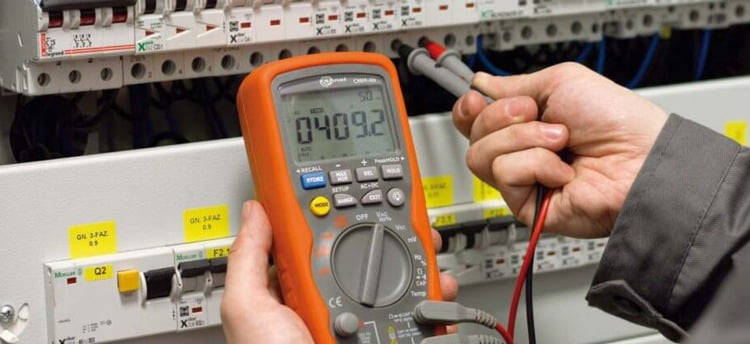Take your facilities to the next level
In some cases, we encounter completed installations that require legalization. We also conduct audits for auxiliary elements related to the activity.
To ensure that the installations for an activity comply with current regulations, a team of experienced professionals must perform technical analyses, necessary inspections, and reports on any potential issues that may arise.
At ICA-GRUPO we propose the most effective and optimal solutions to manage the legalisation of your installations in the relevant administrations. We also take care of the certificates and legalisations of installations that have already been carried out.

We have a team of expert professionals, with a long history of experience and experience in the field of Architecture and Engineering in Barcelona, this will provide you with total peace of mind and no need to worry about the management of the legalisations and certifications necessary to carry out your installation projects correctly.
At ICA-GRUPO we guarantee our efficiency in obtaining any type of legalisation for installations given our experience and successful experience.
These are some examples of the types of legalisation of installations that we have carried out:
- Legalisation of low voltage electrical installations.
- Legalisation of thermal installations (heating, DHW, air conditioning...).
- Legalisations of combustible gases.
- Legalisation of industrial refrigeration installations.
- Legalisation of solar, thermal and photovoltaic collection systems.
- Legalisation of refurbishment works and distribution of premises.
- Legalisation of fire protection installations.
- Legalisation of the installation of signage on façades and shops.
- Legalisations of "veladores", terraces and other occupations of the public highway.
- Etc.
Success stories
Questions and Answers
The legalisation of installations is the process of certifying that an installation complies with all current legal and technical regulations. It is necessary to ensure the safety, efficiency and compliance of installations, avoid legal sanctions and guarantee the correct functioning of the activity.
Installations requiring legalisation include low-voltage electrical installations, thermal installations (heating, DHW, air conditioning), combustible gases, industrial refrigeration, solar and photovoltaic collection systems, fire protection installations, and renovation and distribution of premises.
The process of legalisation of installations involves the inspection and evaluation of the installations by a specialised engineer or technician, the preparation of technical reports, the submission of documentation to the relevant authorities and the obtaining of the necessary certificates to ensure compliance with regulations.
Hiring an engineering consultancy is important because it provides technical experts with experience in regulations and legalisation processes. This ensures efficient management, minimises the risk of errors and guarantees that installations comply with all legal and technical regulations.
The documentation needed to legalise an installation includes technical drawings, assessment reports, certificates of conformity, technical reports and any other documents required by local authorities. An engineering consultancy can help you compile and submit all this documentation.
The time needed to legalise an installation varies depending on the complexity of the installation and the speed of the local authorities. In general, it can take anywhere from a few weeks to several months. An engineering company in Barcelona can provide a detailed timeline and manage the process efficiently.
An installation audit is a detailed review of the status and operation of an installation to ensure that it complies with current regulations. It is necessary when irregularities are suspected, prior to the purchase and sale of a property, or when the legalisation of an existing installation needs to be updated.
Regulatory compliance is ensured through the detailed assessment of the installations by specialised engineers and technicians, the preparation of accurate technical reports and the submission of the required documentation to the competent authorities. It also includes the implementation of any necessary corrective measures.
If an installation does not comply with regulations during the legalisation process, irregularities are identified and corrective measures are proposed. Once these measures are implemented, the installation is reassessed to ensure that it complies with all legal and technical requirements before proceeding with legalisation.
Thermal installations requiring legalisation include heating systems, domestic hot water (DHW), air conditioning, and any other thermal system used in residential, commercial or industrial buildings. These installations must comply with safety and energy efficiency regulations.
The legalisation of fire protection installations is the process of certifying that fire detection and extinguishing systems comply with safety regulations. This includes alarms, sprinklers, fire extinguishers and evacuation systems. It is essential to ensure the safety of the occupants and the building.
To legalise a solar and photovoltaic installation, technical studies must be carried out, plans and technical reports must be submitted, and certificates of conformity must be obtained to ensure compliance with energy and safety regulations. An engineering consultancy firm can manage this entire process.
The legalisation of refurbishment and distribution of premises involves checking and certifying that the modifications comply with building, safety and accessibility regulations. This includes submitting plans, technical reports and obtaining the necessary permits before and after the works are carried out.
The legalisation of industrial refrigeration installations is important because it ensures that refrigeration systems comply with safety, energy efficiency and environmental regulations. This is crucial to avoid operational and legal risks, and to guarantee the correct operation and sustainability of the installations.










